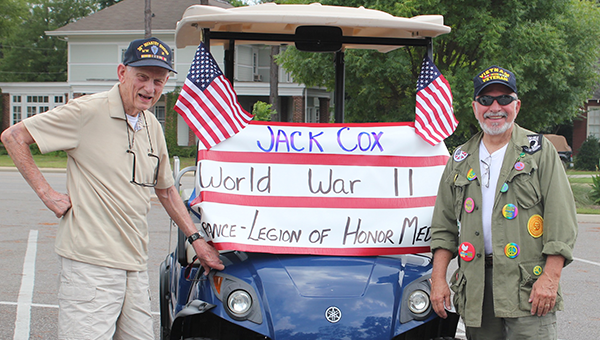UA’s Greek saga reminder of 1st grade
Published 12:30 am Saturday, September 21, 2013
Her name was DeLinda.
She always wore bright clothes, and had pretty ribbons or barrettes in her hair. She was smart as a whip.
DeLinda was also the only African-American child in my 1st grade class in those early days of total desegregation. It was a time when the prevailing “answer” to court-ordered desegregation was to ability group children, in many ways segregating the school.
I have wondered many, many times how it felt to be DeLinda, or to be her mother, teaching on the next hall and wondering if people were being nice to her baby girl.
Because while it didn’t seem to me as a 6-year-old that she was ostracized in any way, as a grown-up, I know that she was. No one invited her home to play, or to birthday parties. No one went to church with her. And her mother wouldn’t have dared been the first to extend the invitation. Desegregation was too new and too fresh.
Slowly, the thinking changed, and the class mixes did, too. By the time we graduated 12 years later, we were all old friends. But though we played sports, marched in the band, and went to proms side-by-side, socially, we were still a very segregated society.
In many ways, we still are, as evidenced by the drama that has played out on the University of Alabama campus in the past two weeks after the student newspaper, The Crimson White, reported on blatant racism in the process of sorority rush. That the Greek system was segregated was not news; that current members of the Greek system wanted to end that segregation – and were appalled when alumni forced them to drop an African-American candidate over whom they would have been fighting except for her skin tone – was.
The story went national, and UA President Dr. Judy Bonner ordered rush reopened. Bonner announced yesterday that in the past week, six of the 14 bids to African American women and other minorities have been accepted, and other bids are currently being considered.
Still, in most communities and congregations, church, where we preach the gospel of loving all, is the most segregated hour of the week.
The changes we’ve witnessed just in my lifetime have been enormous, and the evolution continues. Every single time I read a story on this topic, I think of DeLinda, and I hope that she was as happy as she appeared; that she wasn’t as afraid of white folks as some of them – or at least their parents – were of her.
I wish the same thing for the young women who are this week integrating the Greek system at Alabama, and hope that they will be as unscathed as my friend DeLinda appears to be.



